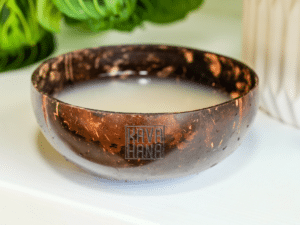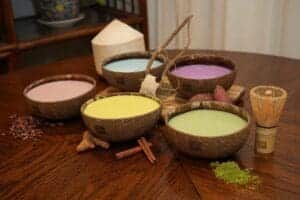We all need sleep, whether we want to admit it or not. It is a critical part of our lives, allowing our brains and bodies to recover. It is when new brain cells connect to things we’ve learned and allow our physical bodies to rest. But many of us have trouble sleeping. Kava’s sleep benefits are a promising option when looking for a solution.
What is insomnia?
Difficulty falling and staying asleep is a disorder called insomnia. There are two classifications: short-term (acute) and long-term (chronic). Short-term insomnia, which affects 30% to 50% of people, usually only lasts for a couple of days. It can be caused by a specific event like illness, jet lag, or stress, and you’re not alone in experiencing it.
Chronic insomnia is a bigger issue. It can occur as often as three days a week and stay on that pattern for three months or longer. Primary insomnia isn’t linked to a known cause, whereas secondary insomnia can be caused by a medication, medical condition, or substance like drinking coffee too late in the day.
Occasional sleepiness is common. However, if you find yourself tired more often or if it lasts longer than a few months, you may want to talk to your doctor.
How is insomnia treated?
The challenge with insomnia and sleep issues in general is that they can be related to other conditions or life events. This makes treating insomnia difficult. Some take sleeping pills and medications. Others work on having a healthy and calming sleep hygiene routine that may include meditation and being off screens at a certain time. And then there’s the herbal approach.
Plants like valerian root and chamomile have long been known to help with sleep disorders. While doses and effectiveness may vary slightly, the integrative sleep community generally supports these.
What are kava’s sleep benefits?
For those who are less familiar, kava is a drink from the South Pacific. It’s made from the dried roots of the pepper plant, ground into a powder, and steeped in water to make a tea-like drink. Kava is known for its calming social effects and has been used for centuries in religious and cultural ceremonies and as a way to bring people together.
Kava has been gaining popularity in the US and other Western countries as a way to help treat anxiety. This has sparked questions about other health and mental benefits kava could have, like insomnia. While research specifically looking into kava’s sleep benefits is sparse, we know that some of the active ingredients in kava, called kavalactones, have more of a tiring effect than others. The kavalactone kavain has been shown to significantly improve sleep in a mouse model of insomnia.
This also introduces the two different categories of kava: heady and heavy. These categories depend on the specific types and quantities of kavalactones you’re drinking.
Heady kavas affect the mind more than the body. They give us clarity, boost our desire to be social, and provide a sort of mental calm and focus. Because of this, they are best drunk earlier in the day when you are getting ready to meet up with friends or go to work. They also only last a few hours, so they are usually out of your system by the time you are ready to go to bed.
Heavy kavas, on the other hand, have more of a body effect. They make you feel heavy and weighed down, tired and relaxed. These are best when you drink them right before bed as their effects are more conducive to sleep and not socializing or creative work. These are where kava’s sleep benefits come from. They also can take longer to take effect and last longer than heady kavas.
How anxiety plays a role
Another rationale for kava’s sleep benefits relates to how it helps reduce stress and anxiety. Anxiety can cause symptoms like racing thoughts, stress, and overthinking, all of which can have a negative impact when we are trying to fall asleep. If we can decrease our feelings of anxiety, it seems natural that our sleep difficulties may also improve.
Kava directly works on important brain chemicals called neurotransmitters. These chemical messengers are responsible for getting signals from the brain to the rest of your body. They control things like muscle function, heart rate, blood pressure, hormone levels, stress, memory and learning, to name a few. Some of you may have heard of are serotonin, dopamine, and endorphins.
The neurotransmitter that kava affects the most is gamma-aminobutyric acid, or GABA for short. GABA is the body’s main inhibitory neurotransmitter, meaning that it decreases communication between cells. It is also responsible for motor function, visual control, and anxiety regulation.
Kavacaltones act by increasing the amount of GABA in the brain. And this is what gives us those wonderful feelings of calm and relaxation. GABA is also connected to sleep. Many sleep supplements work by increasing levels of GABA in the brain (like kava).
The takeaway
While more research needs to be done to investigate kava’s sleep benefits specifically, it is a promising tool based on what we already know about how kava works in the brain. Plus, reports from both the islands and more recent users are indicators of its benefits.
If you are new to kava, start off slowly to learn how your body responds. Like many natural products, there are many individual differences from person to person that can impact how we feel about kava. For more on that, check out our mini guide to choosing the best kava for you.
* Please note that the majority of kava research pertains to kava extracts, which often undergo significant processing and may contain additional ingredients and fillers that can influence their efficacy. It is crucial to consider this distinction when reading about kava studies. To draw an analogy, enjoying natural kava as a beverage can be likened to experiencing a freshly brewed cappuccino, whereas kava extracts are akin in functionality to a caffeine pill. Both forms have their unique benefits and can cater to different preferences and needs. While it’s helpful to understand research on kava extracts, please view it critically and remember that natural kava offers a uniquely holistic experience.







